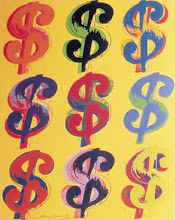The following negative inferences are expressed about the privatization of the inaugural financing: 1. money = perks for donors (special events). 2. money = potential for undue corporate/donor influence on /access to policy makers . 3. money proves hollowness of Obama change rhetoric (this comes out more in the comment section).
In response: Obama people claim process and political advantages:
1. private funding allowed more public involvement in inaugural weekend
donations from big contributors helped to underwrite a slew of events aimed at giving the public access to the historic event, including Sunday's free concert at the Lincoln Memorial featuring Beyoncé, Bruce Springsteen, Garth Brooks and other stars. "You can't do all that for free," Douglass said.2. Obama process for collecting was an improvement over status quo
Obama voluntarily has capped inaugural contributions at $50,000 each and chose not to accept money from federal lobbyists, political action committees, corporations or unions. He also set a $300,000 limit on the amount of money a fundraiser could collect from other donors.In addition, he has disclosed the names of inaugural fundraisers, along with all donations of $200 or more on the Presidential Inaugural Committee's website.3. magnitude trumps undue influence
"When you raise $760 million," referring to Obama's record campaign haul, "you don't owe a single individual anything."4. Obama represents the grassroots (the people not the corporations)
"The president-elect made it clear throughout his campaign that the people who have power in his campaign are the grass-roots"The process and dispositional advantages of the current administration over the status quo and the Past President are important. However, the distributional pattern of the contributions to the inaugural committee, according to the Center for Responsive Politics, reveals a tilt toward "finance, insurance and real estate industries." It is this distributional effect that pushes back the claim that the magnitude/democratization of contributions decreases undue influence or that a better process for a bad system is a net advantage over a reformed public financing law.
How the distributional patterns attempt to push back grassroots power deserves our special attention as the articulations of money/speech transfigure themselves into policy.




No comments:
Post a Comment